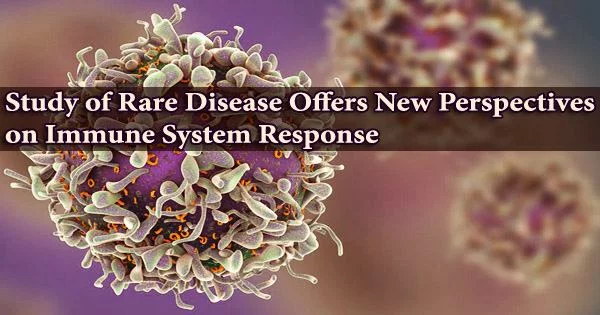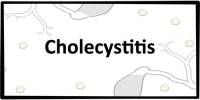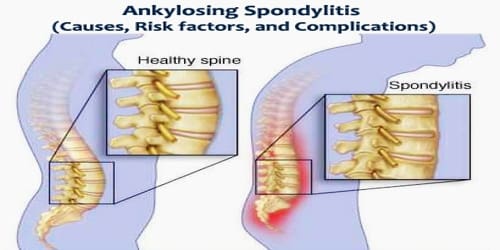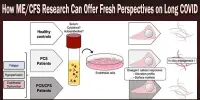Researchers at Johns Hopkins Medicine claim to have discovered new information about how immune system cells react to disease-causing bacteria, fungi, and viruses like SARS-CoV-2 in laboratory trials involving a class of mutations in people with a rare collection of immune system illnesses.
The results, according to the researchers, point to a crucial stage in the molecular circuitry of the immune system’s B and T cells, which activates to fight off foreign invaders. Despite the fact that the researchers focused on rare illness mutations, they believe the results hint to genetic differences that exist in all human populations and that may contribute to the huge variance in how each person reacts to infections.
The researchers examined the cell biology and genetics of three inherited illnesses known as primary immunodeficiency syndromes, which are brought on by mutations in the CARD11 gene in B and T immune cells. They published their findings in the journal iScience on February 18.
In addition to being more susceptible to serious fungal infections, pneumonia, upper respiratory infections, and food and environmental allergies, people with the disorders are unable to establish immunological defenses against pathogens.
The culprit, a modified form of the CARD11 gene, prevents the immune system from recognizing infections and mounting defenses against them by inhibiting a signaling pathway. The majority of vaccines stimulate the same mechanism.
Typically, the CARD11 gene carries instructions for an oligomer, a collection of proteins. The erroneous copy overrides the ability to trigger protective responses when one or both copies of a gene are altered, resulting in an aberrant form of the oligomer.
Proteins in an oligomer sometimes need every protein subunit in the cluster to be fully functional for it to do its job. In certain CARD11-related syndromes, one bad copy of the gene can disrupt the whole cluster.
Joel Pomerantz
Some CARD11 mutations have a significant impact on the oligomer regardless of whether one or both gene copies are defective, unlike some other gene mutations where one normal, functional copy of a gene can offer some protection.
“Proteins in an oligomer sometimes need every protein subunit in the cluster to be fully functional for it to do its job,” says Joel Pomerantz, Ph.D., associate professor of biological chemistry at the Johns Hopkins University School of Medicine. “In certain CARD11-related syndromes, one bad copy of the gene can disrupt the whole cluster.”
Pomerantz and Jacquelyn Bedsaul, the first author of the study report and a doctoral student at Johns Hopkins, concentrated on determining which stage in the signaling cascade requires all of the CARD11 protein subunits in the cluster to be functional in order to determine how this occurs.
They monitored protein levels and the cells’ capacity to become activated and signal other immune cells using laboratory-grown T cells with both functional and mutant CARD11 genes. They discovered that the main effect of CARD11 mutations is on how the protein cluster unfolds and interacts with other proteins, setting off a series of cascade reactions that alert T cells to invading invaders.
They discovered, specifically, that the mutant form of CARD11 completely blocks the protein cluster from opening. The CARD11 cluster cannot initiate an immune response by signaling to other proteins if it is closed.
The opening phase may not be the only process impacted by the altered CARD11 gene, according to trials that were also carried out by the researchers. They used genetically modified T cells with CARD11 proteins that are always in the open state to make this determination. The scientists discovered that a mutation in CARD11 disables the signaling pathway even when CARD11 proteins are active.
“The mutation also appears to disrupt the ability of the protein subunits to interact with other signalizing partners and function normally,” says Pomerantz.
In humans, the most severe CARD11 mutation-related diseases are uncommon. Pomerantz thinks that someday, researchers will create gene-editing methods to treat CARD11 mutations in these patients’ immune cells.
The results, according to Pomerantz, provide insight into the wide variation among immune system responses and may one day help to explain why some people are more likely to experience negative outcomes when exposed to disease-causing pathogens than others for people with genetic variants less severe than those examined for this report.
“When we understand the fundamental mechanisms of how our immune cells operate, we’ll gain a better understanding of how genetic variation in immune-related genes in the human population can lead to different immunologic outcomes,” says Pomerantz.
Neha Shah and Shelby Hutcherson from Johns Hopkins also contributed to the study, in addition to Pomerantz and Bedsaul.
The study was supported by the National Institutes of Health (RO1AI148143, T32AI007247, T32CA009110 and T32GM007445) and funds from the Johns Hopkins University School of Medicine Department of Biological Chemistry.















